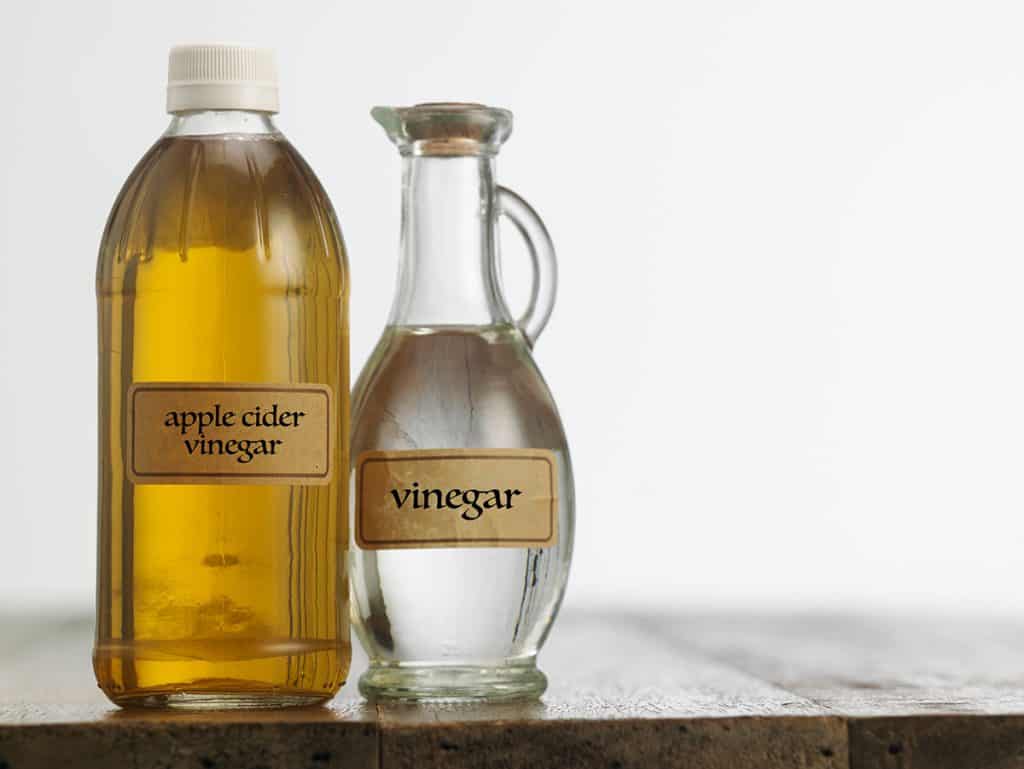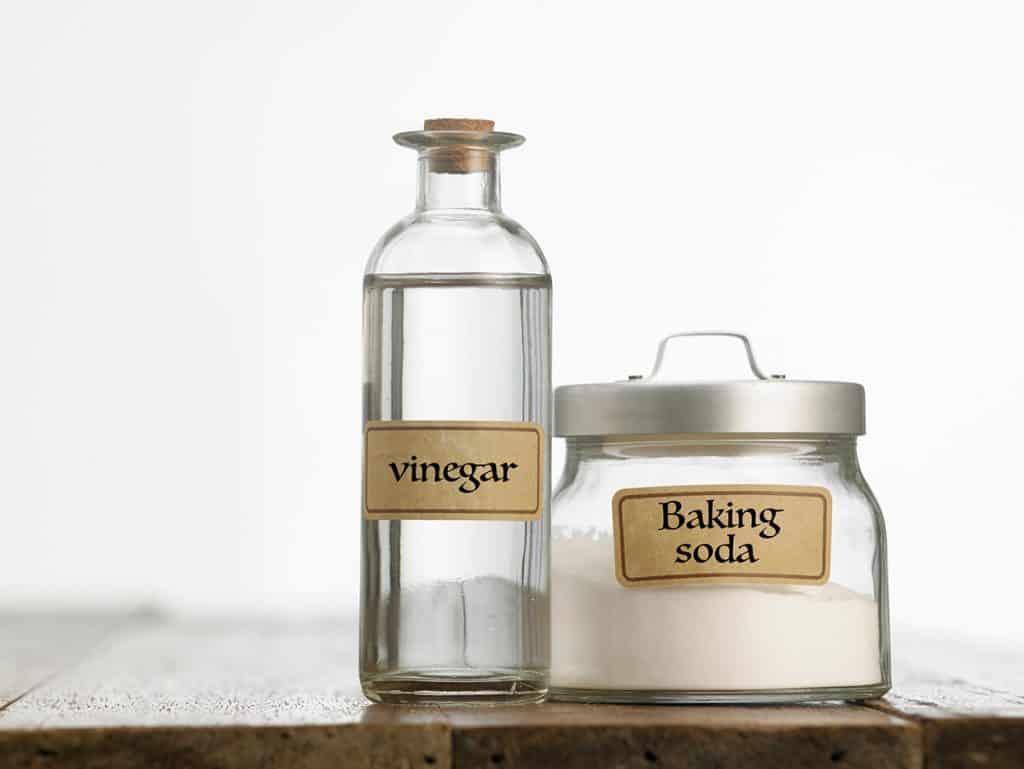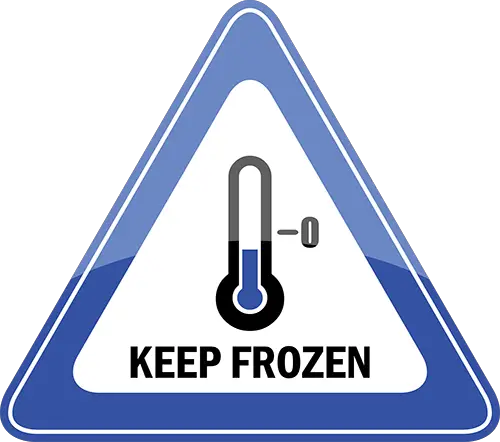Easy Guide to Freezing Vinegar (plus Pros & Cons)
Vinegar is a staple in households around the world—you might already have different kinds of vinegar in your pantry for different dishes! But with all that vinegar taking up space in your pantry, you might wonder if there are alternative ways to store vinegar. The freezer might seem like a winning option, but can you freeze vinegar?
You can freeze vinegar. To freeze vinegar, you just need to have it in a freezer set to 28°F (-2°C) or lower. However, freezing may affect how vinegar (such as apple cider vinegar) works or tastes. So, whether or not you need to freeze your vinegar will depend on what you plan to use it for.
In this article, I’ll go into the details about when you might or might not have to freeze your vinegar. I’ll also discuss what freezing might do to your vinegar. Keep reading.
You Can Freeze Vinegar
Freezing is a method often used to store things because it helps extend the shelf life of certain products.
Since most bacteria can’t grow in freezing temperatures, and molecules slow down when they’re cold, freezing food and other items can make them last a little longer than their stamped expiration date. This makes freezing an excellent storage option for products with shorter shelf lives to reduce waste.
Vinegar is one of those products that can last a long time. Due to its acidity, you can keep vinegar for as long as you want. Some people choose to freeze vinegar to ensure the product always stays fresh. You can do that, too.
But doing so may reduce the vinegar’s acidity level, which may affect the recipe you want to make.
There are dozens of types of vinegar, from plain to apple cider and even rice wine vinegar.
Most types of vinegar will freeze at the same general temperature of between 27 and 28°F (-2 to -3°C).

The Pros of Freezing Vinegar
There are a few reasons you might want to consider freezing vinegar and why it might be the right storage option for you. The following discusses why it’s okay to freeze vinegar:
You Can Reduce the Vinegar’s Acidity by Freezing It
There are many different kinds of vinegar, and they’re not equal. You may love the taste of balsamic vinegar, for example, but you may find yourself avoiding it because it’s too tart for your palate.
If you find vinegar too sour, you may want to reduce its acidity level. Freezing vinegar can reduce its acidity because the acetic acid you can find in vinegar will start to change once it’s been exposed to freezing temperatures.
It’ll cause the sour taste you associate with vinegar to become less evident.
Freezing Helps Extend the Vinegar’s Shelf Life
Some people freeze vinegar to extend its shelf life, and you might also consider doing it, especially upon noticing that you’re getting close to the vinegar’s “best by” date, although you still have half a bottle left.
If you don’t use vinegar much or have multiple types of vinegar, you may find yourself struggling to finish it before it starts to degrade in quality.
In both these cases, freezing your vinegar will buy you a little extra time.
While it’s true that freezing vinegar will change its acidity level, preparing food with most types of previously frozen vinegar likely won’t be affected much.
The Cons of Freezing Vinegar
There are many occasions when freezing vinegar is the right choice, overall. However, while it might be possible to freeze vinegar without any consequences, there are still times when you may want to think twice before you decide to put your vinegar bottle in the freezer.
The following discusses the downsides of freezing vinegar:
Freezing Vinegar Might Alter the Taste
In most cases, freezing vinegar likely won’t change its taste much. You may not even notice it. However, this isn’t always so. Apple cider vinegar, for example, is notorious for having a change in flavor once it’s been frozen.
This may be a problem for other types of vinegar that have a unique flavor pivotal for your recipes. People with a very keen sense of taste may notice even the slightest difference in how frozen vinegar might taste.
Before you freeze an entire bottle’s worth of vinegar, it may be worth freezing and defrosting a small amount first. That way, you’ll know if freezing vinegar will ruin its taste for you before you potentially waste an entire container.

You Can’t Use Frozen Vinegar for Certain Foods or Cleaning
How you plan to use your vinegar may affect whether or not you should store it in the freezer.
If you plan to use your vinegar to prepare cooked or uncooked food, you likely won’t have any problems. That’s especially true if you’ve already determined that the taste of vinegar you’re using won’t be significantly affected by being frozen and then thawed.
If you plan to use your vinegar for pickling foods, then you may want to stay away from previously frozen vinegar. Since freezing reduces vinegar’s acidity, your pickles will have a less sharp taste if they’ve been made in thawed out vinegar.
For people who don’t typically like the taste of pickled foods, this might be a good thing. However, if you enjoy the tangy taste that pickling gives to food, you might lose some of that if you use less acidic vinegar.
Frozen Vinegar Is Not Suitable for Cleaning
Suppose you want to use vinegar for cleaning. Then you shouldn’t freeze it. Previously frozen vinegar is much less effective as a cleaning product than vinegar that has never been frozen.
Part of what makes vinegar such a good cleaning agent is its acidity. That’s what will eat away at grime and dirt and leave behind a nice, clean surface. When you do anything to reduce how acidic your vinegar is, you’ll reduce its ability to clean.
That means you’ll have to use more vinegar, or you may have to use different cleaning products altogether, meaning you’ll have frozen your vinegar for nothing.
Freezing Won’t Make Much Difference to the Vinegar’s Shelf Life
This factor is familiar if you’ve read this article’s “pro” section. That’s because this one can be a pro or a con.
While you may want to freeze your vinegar if you find yourself getting close to its expiration date and you don’t think you’ll be able to use all of the vinegar you have left, it’s not always necessary.
Vinegar is a product that usually has a very long shelf life. In fact, here’s the average shelf life for some common types of vinegar:
| Vinegar Type | Shelf Life (if not exposed to extreme temperatures and conditions) |
| Plain distilled vinegar | Indefinite |
| Red wine vinegar | 2 years |
| White wine vinegar | 2 years |
| Rice wine vinegar | 2 years |
Acids tend to last for a very long time before they start to show signs of degradation, so you likely won’t have to worry about getting close to the best by date, meaning freezing may be unnecessary.

How To Freeze Vinegar
If you’ve decided that freezing your vinegar is the right choice for you, then you should make sure you do it correctly.
Unfortunately, while it’s not quite as simple as just putting your vinegar bottle in the freezer and calling it a day, there are a few steps to follow:
- Decide how much to freeze. Like most things you freeze, once the vinegar has been frozen and then thawed, it shouldn’t be frozen again. That means you should try to freeze your vinegar in quantities you would likely use all at once.
- Transfer your vinegar to a different container. Most of the time, vinegar bottles aren’t made freezer-safe because vinegar isn’t sold to be frozen. Liquids often expand as they freeze. If you don’t have your vinegar in a freezer-safe container or bottle and leave it in its original glass or plastic, it might explode once it’s frozen solid.
- Don’t fill your container. Even in a freezer-safe container, leave a little bit of room to allow your vinegar to expand. The amount of room you should leave will depend on the size of your container.
For example, a container large enough to hold a typically full vinegar bottle should have at least a few inches of space. Small containers will likely need an inch or less.
You can keep the vinegar in a glass. This Italian Glass Oil and Vinegar Cruet from Amazon.com is a good option. The glass is tall and should be enough to keep the vinegar you want to keep. It’s durable and convenient to use, with a drop-free spout that allows easy pouring.
How To Thaw Frozen Vinegar
Fortunately, defrosting vinegar is a much more streamlined process than freezing it. All you have to do is remove your vinegar container from the freezer and let it defrost slowly in your fridge for a few hours.
The most important step here is to remember to allow enough time for defrosting before using your vinegar.
Final Thoughts
You can freeze vinegar. Unlike some other liquids, you only need 28°F (-2°C) for vinegar to start to freeze. So, storing it in your home freezer is a viable option.
However, just because you can freeze vinegar doesn’t mean it’s always necessary to do so. Freezing is a great option for vinegar that’s about to pass its best by date or to reduce its acidity.
On the other hand, you generally won’t have to worry about vinegar shelf life as it tends to stay good for an extended amount of time. Freezing can affect the taste and effectiveness of some vinegar.



